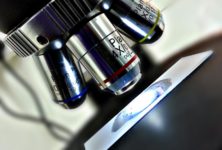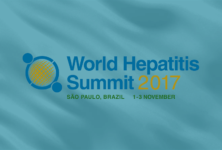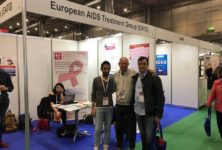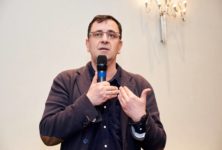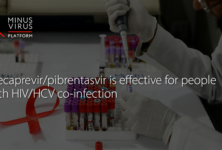Even in very early (acute) HIV infection—before fourth generation HIV test assays are able to detect an HIV infection—immune activation and inflammatory processes may already be occurring, new research shows.
And, very early antiretroviral therapy (ART) may reduce, although not fully suppress, production of inflammatory markers associated with cardiovascular problems and mortality. Results from a study published in CID by Irini Sereti and colleagues offers insight into why early antiretroviral therapy vastly improves—but fails to fully restore—some health outcomes of people living with HIV, said Peter Hunt, MD, in an accompanying editorial commentary.
“Many markers of immune activation fail to normalize even when ART is initiated during the earliest stages of acute HIV infection,” said Hunt. “Early ART initiation can attenuate but not fully abrogate the persistent inflammatory state. If this were the case, one might have expected immediate ART initiation in the START and Temprano trials to decrease but not completely abrogate the risk of several morbidities that have previously been linked to the inflammatory state in treated HIV infection.”
The study by Sereti and colleagues measured the levels of inflammatory markers over time in people in people participating in a prospective study of ART initiation for acute (recent) HIV infection in Bangkok, Thailand. People in the study had only very recently acquired HIV. (The researchers divided the sample into three groups: The median time since self-reported HIV exposure was 12 days in group 1, 17 days in group 2 and 18 days in group 3.)
Study participants all began antiretroviral therapy soon after being diagnosed, so the researchers were able to look at how the levels of inflammatory markers changed with HIV treatment. The researchers also compared the levels of inflammatory markers in people recently infected with HIV to the levels found in a similar sample of people who were HIV-negative.
C-reactive protein (CRP)
CRP is used as one measure of inflammation in people living with HIV. It’s been associated with cardiovascular events like heart attacks and greater risk of mortality. In this study, people with very early HIV infection had elevated levels of CRP, and it appeared as though people who had been infected with HIV for slightly longer amounts of time had higher levels of CRP than those with more recent infection.
Antiretroviral therapy reduced this marker of inflammation. CRP levels decreased after two weeks on ART. Still, after 96 weeks of ART, people living with HIV had higher levels of CRP compared to people who were HIV-negative.
Tumor necrosis factor (TNF)
Study participants with early HIV infection also had higher levels of tumor necrosis factor (TNF), another marker of inflammation. TNF levels increased through 48 weeks on ART, and then decreased by week 96—to levels similar to those seen in HIV-negative people.
Interleukin 6 (IL-6) and mediators
Levels of IL-6 (an inflammatory marker which is associated with increased risk of mortality) were higher in people recently infected with HIV than in people who were HIV-negative. Levels of sIL-6R, which mediates IL-6 signaling, were also higher in people with recent HIV infection in the study. (Levels of a third signaling protein, sgp130, were not higher in HIV-positive study participants.)
The level of IL-6 and mediators varied over time with antiretroviral therapy, with a levels at 96 weeks comparable to levels seen in HIV-negative participants.
The take-away
This study gives us more information about inflammation that happens very early on in HIV infection—and the effect of early HIV treatment on inflammatory processes.
When people start taking antiretroviral therapy very early on during HIV infection, ART will normalize levels of some inflammatory markers (TNF and mediators of IL-6) but not others (CRP), the authors said.
One caveat, said Hunt in his editorial, is that people in the study were treated with efavirenz-based regimens, which are no longer recommended as a first-line treatment options and may result in greater levels of immune activation than other treatment options.
“It remains to be seen whether abnormal immune activation would persist if acutely HIV-infected individuals were treated with modern efavirenz-sparing regimens,” said Hunt.
By Emily Newman
Sources
Hunt, P. Very Early ART and Persistent Inflammation in Treated HIV. CID. January, 2017.
Sereti, I. and colleagues. Persistent, Albeit Reduced, Chronic Inflammation in Persons Starting Antiretroviral Therapy in Acute HIV Infection. CID. January, 2017.


 ПОИСК ПО САЙТУ
ПОИСК ПО САЙТУ  поиск по ресурсному центру
поиск по ресурсному центру 